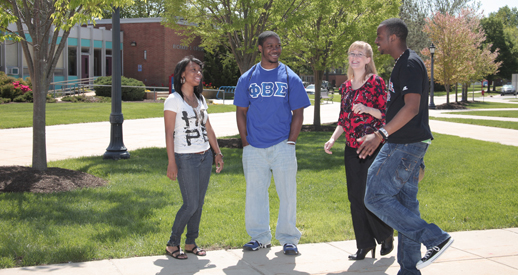
DSU Faculty and Administrators Selected for AACU Summer Institute
Seven faculty members and administrators from Delaware State University have been selected to take part in the American Colleges and Universities’ “Summer Institute on Integrative Learning and the Departments” from July 11-15 in Burlington, Vt.
Among the DSU contingent attending the Summer Institute are: Genevieve Tighe, assistant vice president for Academic Affairs/Institutional Effectiveness; Phyllis Brooks-Collins, director of Academic Enrichment; Dr. Rebecca Fox-Lykens, director of the DSU Center for Teaching and Learning; Dr. Joe Amoako, interim chair of the Department of English and Foreign Languages; Dr. Andrew Lloyd, associate professor of biological sciences; Dr. Aristides Marcano, associate research professor of physics; and Dr. Niklas Robinson, assistant professor of history and political science.
This Summer Institute is designed for colleges and universities interested in building faculty and departmental leadership for essential 21st century learning – knowledge of multiple disciplines, inquiry and critical thinking, personal and social responsibility, and particularly, integrative learning.
The institute helps institutions develop plans to integrate major programs with general education, and to assess broad student learning outcomes within individual departments and majors. Among the 18 institutions of higher education with teams in attendance, DSU will be joined by several other Historically Black Colleges & Universities.
AAC&U is the leading national association concerned with the quality, vitality and public standing of undergraduate liberal education. Its members are committed to extending the advantages of a liberal education to all students, regardless of academic specialization or intended career. Founded in 1915, AAC&U now comprises more than 1,250 member institutions—including accredited public and private colleges, community colleges, and universities of every type and size.
AAC&U functions as a catalyst and facilitator, forging links among presidents, administrators and faculty members who are engaged in institutional and curricular planning. Its mission is to reinforce the collective commitment to liberal education at both the national and local levels and to help individual institutions keep the quality of student learning at the core of their work as they evolve to meet new economic and social challenges.

